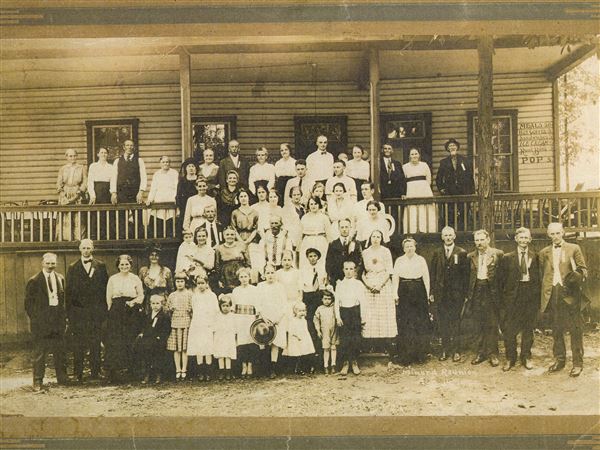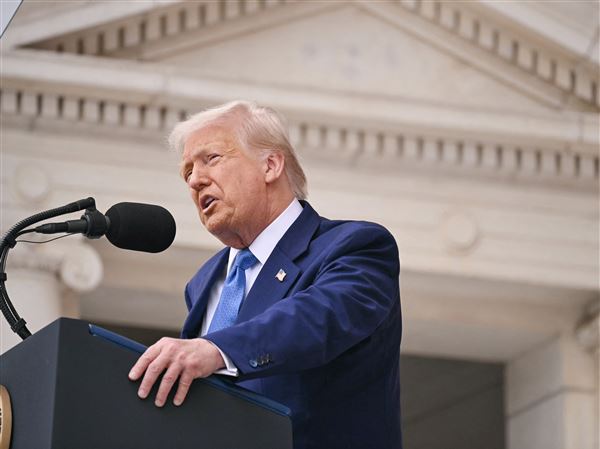Every one should go on a long American road trip at least once. Go when you're young and foolish, when you have time and no money. Go when you're old and wise, like author Philip Caputo, when you have lots of money and all the time in the world. Just go.
You'll quickly see, as Mr. Caputo did when he cut 8,314 miles across the chest of North America from Key West to Alaska's north coast, what a great country you live in.
"THE LONGEST ROAD: OVERLAND IN SEARCH OF AMERICA, FROM KEY WEST TO THE ARCTIC OCEAN"
By Philip Caputo
Henry Holt ($28).
Oh. I forgot. There's only one rule. Whether you're a famous American or a nobody American, if you plan to write a book about your adventures on the open highway, don't do what Mr. Caputo did.
Don't take your wife. Or your two English setters. Or a precious vintage Airstream trailer. Go alone. And go light. Otherwise, unless you get lucky and get abducted by aliens, you'll write a dull, disappointing American road book like Mr. Caputo's.
On paper, "The Longest Road" should have worked perfectly. In the summer of 2011, at age 70, the author of the heralded 1977 Vietnam memoir "A Rumor of War" and his wife and pets set off in their used Toyota Tundra.
Mr. Caputo's gimmick -- all American road books need a contrived mission or quest -- was to try to find out what social forces or political ideas held our fractious homeland together.
Staying mostly on back roads and over-nighting in trailer courts, he met and captured the mini-biographies and sometimes shocking opinions of dozens of interesting and/or eccentric everyday Americans.
Mr. Caputo's basic drive-by journalism was fine, whether he was describing the evolution of an aging hippie commune in Tennessee or Willa Cather's hometown in Nebraska. Unfortunately, his writing has no spark and little humor and his insights are mostly predictable, PBS-correct and pedestrian.
Mr. Caputo knows how to spot an interesting place or person, such as the Pine Ridge Indian reservation or the Missouri woman who ran a horse farm and helped to stop a dumb Army Corps of Engineers dam from being built.
But struggling to park a trailer, worrying about what to do with your dogs, searching for the perfect place for lunch, celebrating your 23rd wedding anniversary at a winery or canoeing in the wilderness with your wife are not travel adventures worth sharing with the whole world.
One of the first people Mr. Caputo met -- Dean Cannon, the Republican speaker of the Florida House of Representatives -- gave a perfect answer to his cross-country search for what holds "our monster, mongrel nation in one piece."
"Despite our social, ethnic, political and religious differences," Mr. Cannon said channeling the Founding Framers, "America is held together by a decentralized federal system of government that allows regional and local autonomy within a framework of constitutionally protected rights."
Mr. Caputo has similar thoughts. He concludes that the force binding us together as Americans is generated by "the perpetual conflict" of two historical "political extremes" -- Jefferson's small/weak government and the expansion of individual liberty (what Mr. Caputo calls "anarchy") versus Hamilton's strong centralized federal government (what Mr. Caputo calls "tyranny").
"The Longest Road," which has garnered kinder reviews than it deserves, presents an informative drive-by MRI of 2011. And, intentionally or not, it proves an obvious but often forgotten truth about the core healthiness of the USA.
The vast, wildly diverse country Mr. Caputo traveled -- despite the tireless efforts of Washington and Wall Street to wreck it, and contrary to the relentless negativity of the media -- is still mostly prosperous, beautiful, safe and empty.
And as Mr. Caputo's chronicle also proves, America is overflowing with good, smart, hard-working, successful individuals, plus a few nut balls and bigots, to make a dull road book interesting.
First Published: September 13, 2013, 8:00 a.m.















